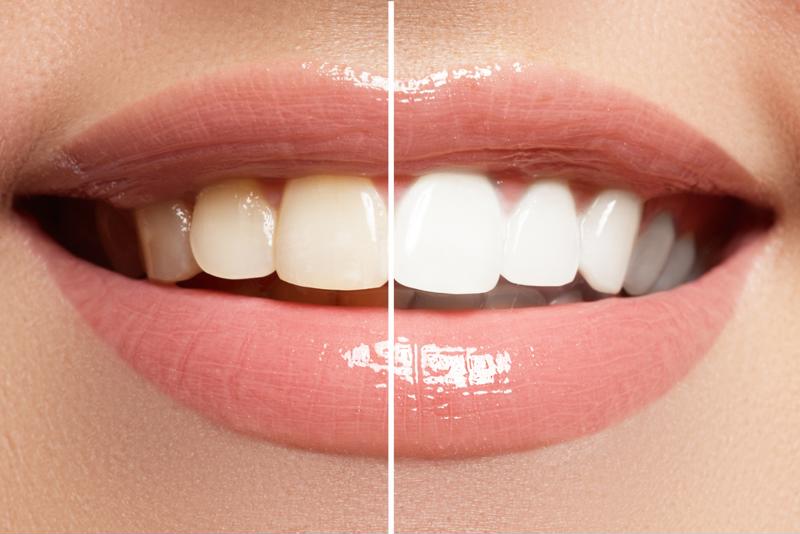For most people, flossing, brushing and gargling — typically in that order — represents the holy trinity of good oral hygiene. After getting in between all those tiny crevices to whisk away remnant food particles, then effectively brushing to eliminate (as much as possible) plaque that forms along the gumline, mouthwash helps to rinse it all away, leaving the mouth with a freshened feel and smell.
That said, while no one denies the consequential importance of brushing and flossing, not everyone agrees on the third member of the oral hygiene triumvirate. Critics of mouthwash suggest that not only is using this liquid unnecessary, it may even be deleterious to a person’s wellness, potentially leading to both short and long-term complications.
Let’s explore some of the claims regarding why mouthwash ought to be avoided, the arguments that advocate for its use and our take on whether rinsing with mouthwash should continue being a part of your oral care routine.
What are the claims that denounce the use of mouthwash?
High alcohol content: If you look at the ingredients on your mouthwash, you’ll see a variety of them. For many commercially available mouthwashes, a leading ingredient is alcohol, which is used as a preservative and helps to activate some of the other ingredients that support dental health. However, because alcohol is a natural diuretic (even though you don’t swallow mouthwash), critics say that certain mouthwashes can lead to dry mouth, or xerostomia. This may ultimately increase the risk of cavity formation due the lack of saliva flow and can contribute to bad breath.
Cause canker sores: Canker sores are very small lesions that can form on various surfaces in the mouth, including the gumline and the tongue. While these typically go away on their own, they can nonetheless make eating and drinking uncomfortable for several days, if not weeks. Mouthwash detractors point to an ingredient called sodium lauryl sulfate, commonly used in rinses, as one that can trigger the formation of canker sores.
Teeth staining: From coffee to colas to tomato sauce and more, lots of foods and beverages can darken the natural white shade of teeth. But mouthwash may as well. A study published in the National Institutes of Health, a U.S.-based medical journal, claims that rinses containing chlorhexidine are more likely to cause temporary teeth staining versus those products that don’t have this ingredient.
 Some believe mouthrinses can cause teeth staining.
Some believe mouthrinses can cause teeth staining.Burning sensation: A natural stimuli of mouthwashes containing alcohol is a burning sensation because of the way that alcohol reacts to the saliva and other acids in your mouth. And the higher the volume of the alcohol, the stronger the burning feeling tends to be. Some mouthwashes are up to 25% alcohol, if not more.
Increased cancer risk: This one may be the boldest of the arguments. In a 2016 study that was also published in the National Library of Medicine, researchers point to alcohol-based mouthwashes as being a “potential risk” for certain cancers, particularly head and neck cancer. Head and neck cancers are fairly rare in New Zealand. Estimates indicate that they account for between 3% and 5% of all cancer diagnoses in the country.
What are the reasons for using mouthwash?
Minimises bad breath: A variety of foods are known to contribute to bad breath, but the underlying cause is the bacteria that food leaves behind. Mouthrinse not only helps to wash away food particles but it also neutralises the bacteria by killing it.
Reduces the risk of gum disease: As we’ve noted in previous articles, gum disease is a massive health problem all across the globe, with approximately 14% of the world population severely affected by it, according to the World Health Organisation. While mouthwash alone is not sufficient to neutralise the threat of gum disease risk, it can help to reduce its occurrence by destroying the bacteria that can lead to gingivitis. Gingivitis is another name for gum inflammation and is often a predecessor to full-blown gum disease.
Ward off tooth decay: Perhaps the most effective ingredient in mouthwash is fluoride. Found in toothpastes as well, fluoride helps to strengthen enamel, which is the thin, invisible layer that envelops the teeth and protects them from erosion. Mouthwashes containing fluoride can ward off cavities by reinforcing the enamel and diminishing plaque buildup.
Removes what your toothbrush and floss may miss: Even when you’re very fastidious about brushing and flossing, you may be unable to reach certain portions of your teeth where plaque exists. Mouthwash serves as a last line of defense by literally washing away particles that you may have missed or that were more lodged into the crevices between your teeth than you realised.
Bottom line
Mouthwash is an effective at-home oral care treatment that is convenient, simple and promotes healthy teeth and gums. While it can lead to dry mouth for some people, the other claims are without merit and don’t present a serious threat to users. Organisations like the New Zealand Dental Association, American Dental Association and several others recommend mouthwash to the point of endorsing specific brands. City Dentists echo these respected organisations’ support. If you have any questions about the brand you use or seek a recommendation, contact us today. And while you’re at it, schedule an appointment for a cleaning.
